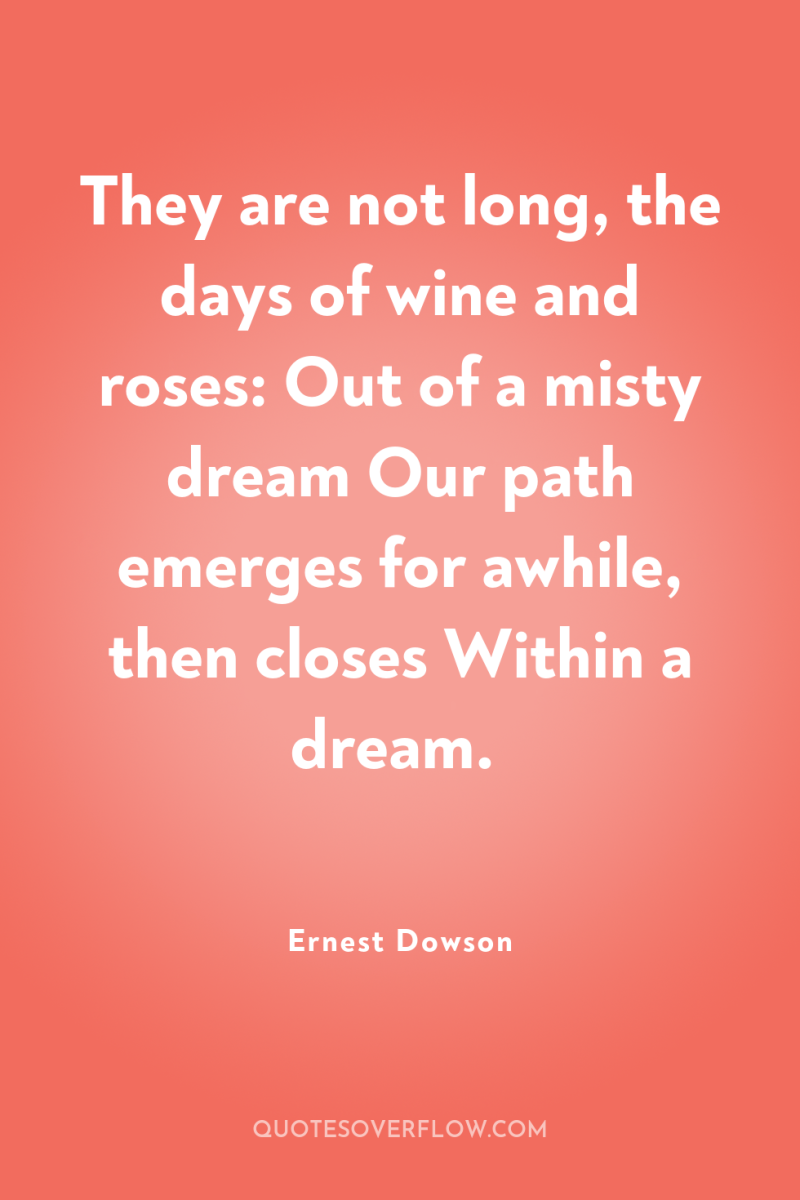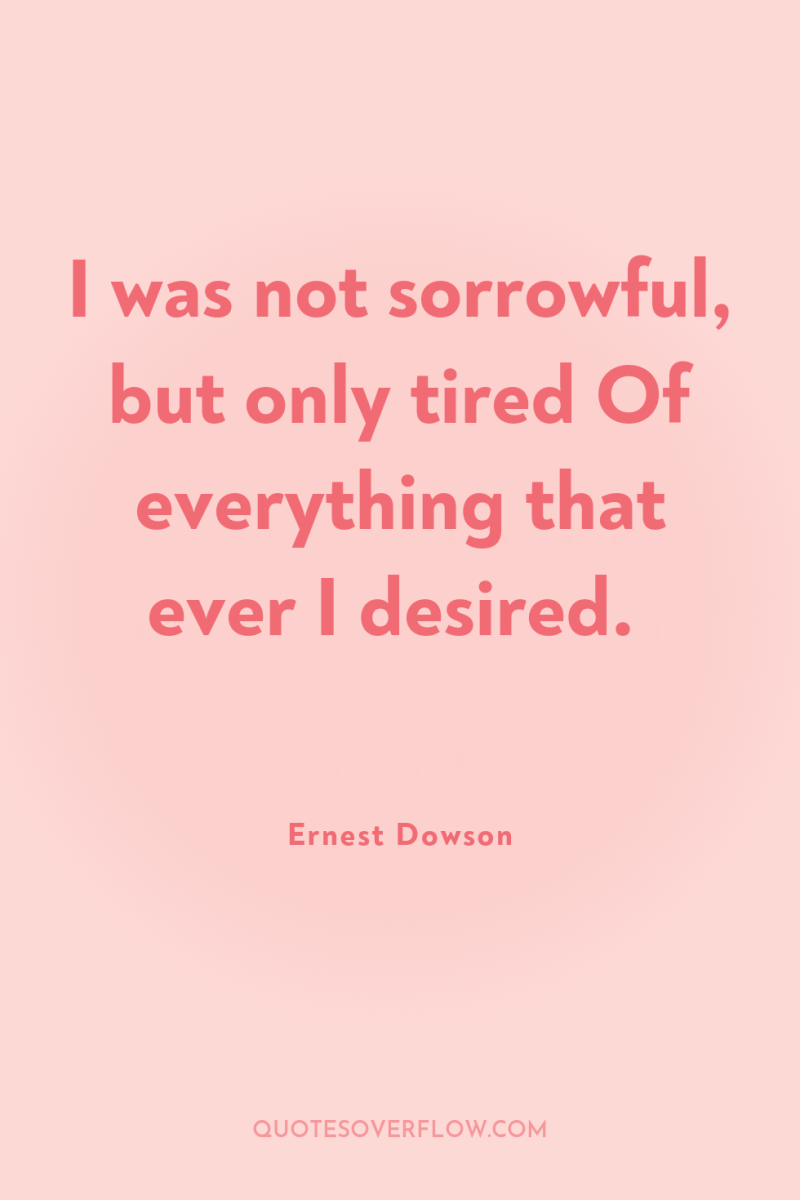Ernest Dowson (1867–1900) was an English poet, best known for his poem "If". He was born in London, the son of a British Army officer. He was educated at the High School in King's Lynn and Clare College, Cambridge. After graduating in 1887 he went to Paris, where he worked as a journalist for two years
Read more
In 1889 he published his first volume of poetry, "Pagany", which was followed in 1892 by "The Holy War". These poems were influenced by mysticism and by what he described as his mystical experiences. He began to lose faith in Christianity and in 1893 joined the Theosophical Society.
Dowson's famous poem "If" was written in 1890 while he was staying in the South of France with his friend, the painter Henry Scott Tuke.
Dowson wrote it in response to Tuke's account of a dream he had had, in which Tuke saw himself lying flat on his back gazing up at an infinite expanse of light beyond which lay nothingness. Dowson wrote that if Tuke were to lie down on to that infinite plain he would never get up again.
In 1896 Dowson returned to London, where he also published "The Lost Leader" (the title refers to Judas Iscariot). In 1897 Dowson became ill with tuberculosis and died at Croydon on 6 August 1900.
His funeral service was held at Christ Church, Bloomsbury, London.
Dowson left behind him a number of unfinished works, including two novels "Soliloquy" and "The Wonder House", a play "The Woman Who Loved", and many short stories. His famous poem If has been set to music by composers including Charles Villiers Stanford, Edward Elgar and Frederick Delius.

